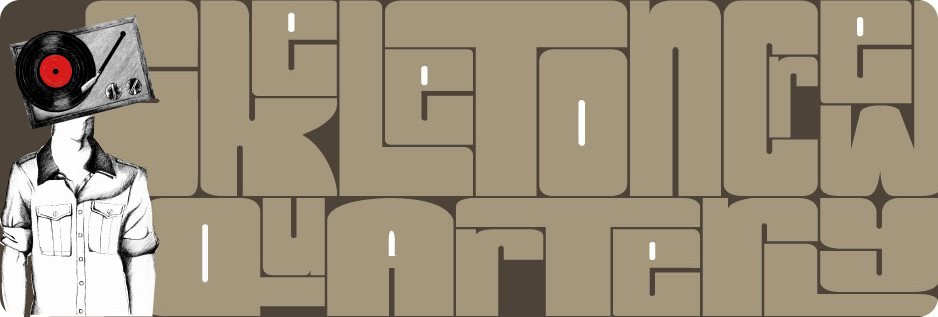
The Floodlight Collective
Lotus Plaza
Kranky Records.
SCQ Rating: 83%
Being a fan of Deerhunter pays a lot of music-nerd dividends; not only do each of their releases vary drastically, allowing for virtually endless debate over their influences, direction and intentions, but they work feverishly, offering five official releases and a hundred or so free tracks in the last twenty-two months. Now while only three of said releases are under the official Deerhunter name, solo releases by Bradford Cox (under Atlas Sound) and now Lockett Pundt (as Lotus Plaza) don’t deviate from their primary band’s sound so much as expose and run with Deerhunter’s fringe experiments. Where Atlas Sound buried Deerhunter isolation in bedroom-pop ambience on last year’s Let the Blind Heal Those Who Can See But Cannot Feel, Lotus Plaza seems borne from Weird Era Cont.’s carefree sound collages. While both side-projects contain ample layers of hazy reverb, The Floodlight Collective avoids becoming an Atlas Sound shadowplay by merging Pundt’s shoegaze-clouds with compositions influenced by the golden age of rock and R&B.
There’s an immediacy to both the sea-side breeze of ‘Red Oak Way’ and the Motown thump of ‘Quicksand’ that reveal this album’s timeless quality, that of a half-century’s musical ascent collapsing into itself. Now this isn’t to say that Pundt has sought to create a concept album of sorts – he hasn’t – and truthfully, something so pre-planned and ostentatious would likely diminish the unpredictable brilliance of these ten tracks. Instead, The Floodlight Collective places the drowned-out instrumental work from Cryptograms in a blender with musical genres of his youth, and by adding a good serving of Kranky-approved ambience, has created a stunning soundtrack to one’s daily life. Pundt’s tenure in one of modern indie-rock’s best bands hardly shies away as ‘What Grows?’ lurches forward with the druggy guitar of a virtuoso at work, while ‘A Threaded Needle’ locks into a tight chord dissection of guitar, bass and drums. Yet these rock elements, as reverb-coated and effects-ridden as they are, always subside back into the Lotus Plaza flood, where echo-drenched ambience wins the war. ‘These Years’ might just be the best song to watch rain hit concrete to, while late centerpiece ‘Antoine’ is an epic tale of trickling percussion and cascading keys. Never mind that you can hardly discern a word Pundt sings, that’s hardly the point. A record like this starves for personal attachments of its listener; the lyrics are truly in your head.
Proceedings never get too pleasant, thankfully, as The Floodlight Collective tests its boundaries and breaks air-holes in its ozone. ‘Sunday Night’ is an electronic swarm of frantic codas and tempered glitches, featuring a vocal and bassline that eerily resembles Let the Blind Heal…’s ‘Bite Marks’. Speaking of Cox, the ringleader himself shows up to play drums on ‘Different Mirrors’, a track that jangles with more languid aggression than the others. Neither of these tracks are highlights but they’re healthy distractions that remove the risk of any album-monotony. As layered and ghostly as both Lotus Plaza and Atlas Sound are, and as close as the two artists are (bandmates, best friends), it’s pleasing to hear how they’ve split seemingly similar sonic territory into two auteur-ish enterprises. If Atlas Sound was meant to exorcise Cox’s childhood traumas, Lotus Plaza seems hell-bent on returning to the joys and mysteries of his own. Yeah, that's Pundt's brother on the cover.
Coming from a band capable of so much controversy – much of it, admittedly, revolving around Cox – it’s no surprise that The Floodlight Collective has baffled many critics. Most reviews I’ve read insist that it’s too hazy (and if I’d only listened to it twice, I might feel the same way) but, as immersive as this record is, Lotus Plaza has debuted a hybrid of the highest order. The rock tendencies are cornerstones to most of these songs’ melodies and while they give it some snarl and bass, The Floodlight Collective is sympathetic like an ambient record; it’ll slide out of focus when you’re lost in thought, it’ll magnify your senses when you’re paying attention. Perhaps the finest daydream record of the year.









